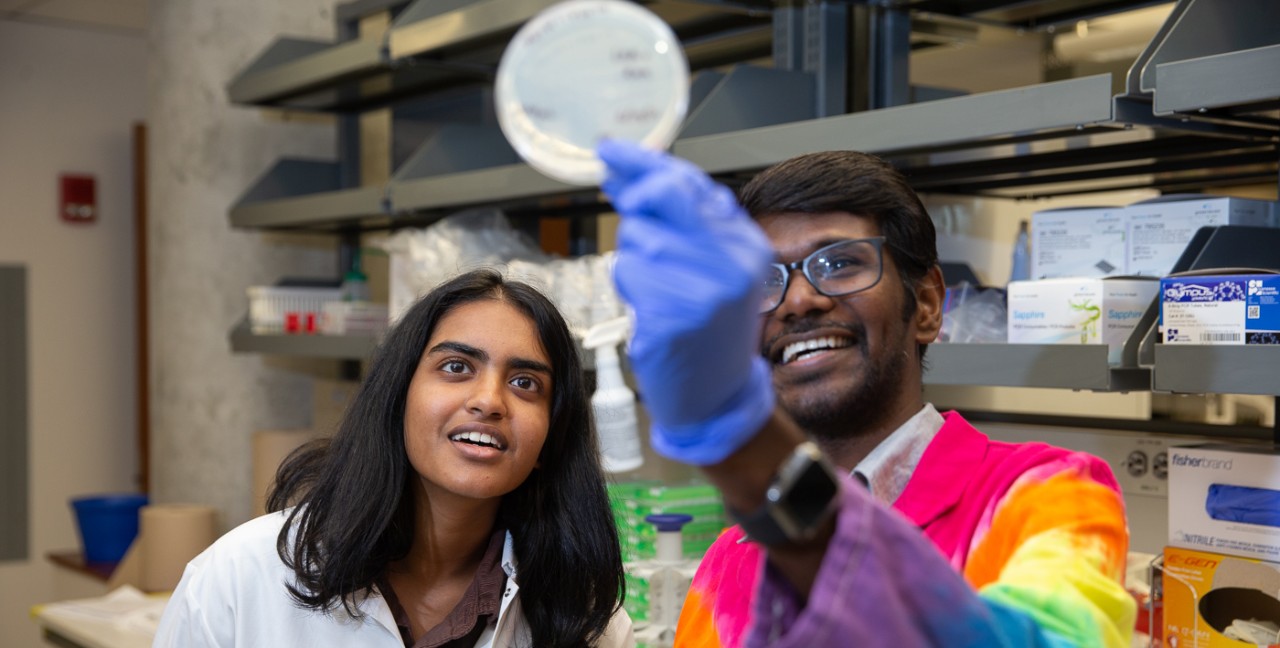
UC research program gives underrepresented students a chance
UPRISE is designed to boost representation in STEM fields
Mary Wilkens is pursuing a degree in speech language hearing sciences at the University of Cincinnati so she jumped at the chance to conduct research for 12 weeks with a mentor in UC’s College of Allied Health Sciences.
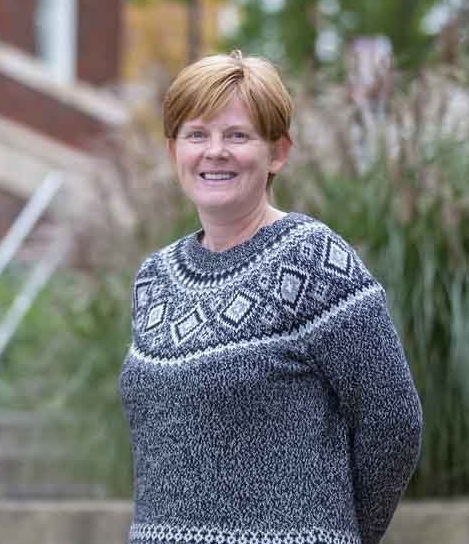
Heather Norton. Photo/Joseph Fuqua II/UC
Wilkens is part of UC’s Undergraduates Pursuing Research in Science and Engineering or UPRISE. The competitive program gives students in underrepresented groups the opportunity to engage with faculty and peers in scientific research.
The 20 students in this year’s cohort are working on topics ranging from studying the properties of Nevada’s biggest landslides to machine learning in high energy physics. They get a stipend to work in a research lab during the summer.
“I would 100 percent recommend it,” Wilkens said. “No matter where you are in your academic career, there are people ready to help you build off what you may or may not know.”
UC anthropologist Heather Norton, who administers the program, said it’s open to students who historically have been underrepresented in STEM fields, including first-generation students, students with disabilities and nontraditional students.
“It’s a very broad umbrella,” said Norton, an associate professor in UC’s College of Arts and Sciences.
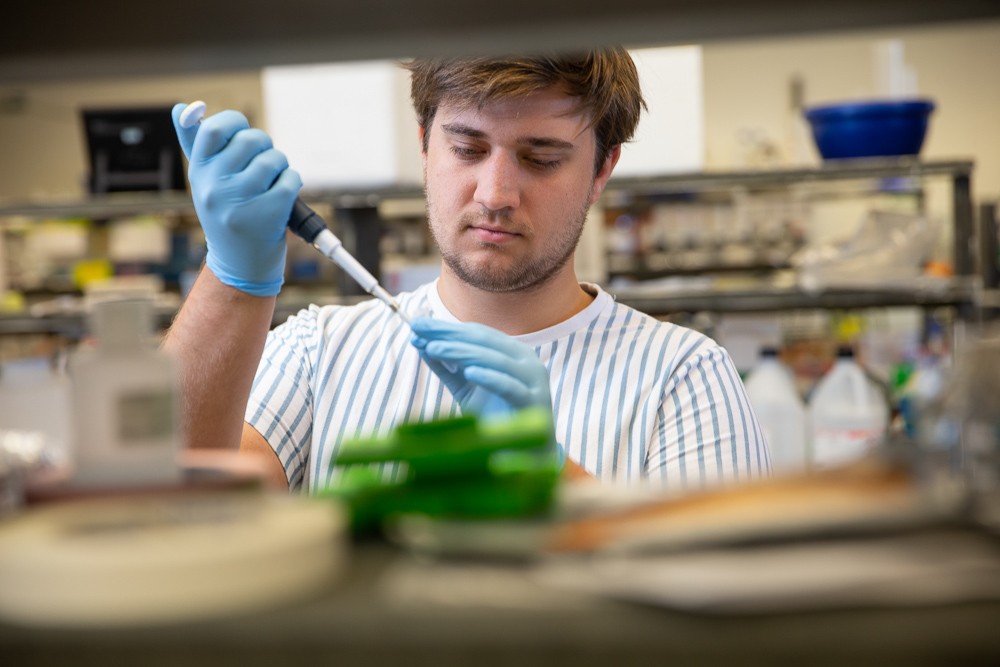
UC student Chase Dietz works in assistant professor In-Kwon Kim's chemistry lab. Photo/Andrew Higley/UC Marketing + Brand
Norton said she hopes the program will help students build lasting professional relationships in their academic and professional careers.
“Even when the program is over, they’ll have a community to talk to. If they are struggling with a grant application, there is a group of peers they can turn to who got it,” she said. “Success in STEM fields can improve when students have a sense of community and belonging.”
UPRISE has shown me that I want this to be my career.
Chase Dietz, UC chemistry and biology major
Students who are selected in the application process get matched with faculty who are doing research related to their majors. Costs are split between the program and the professors’ labs.
Norton said research experience looks good on any graduate school application. The experience is equally valuable for students who decide a research track isn’t for them.
“Or they could develop a passion for it and that can be the spark that pushes them ahead to graduate school or medical school,” Norton said. “These experiences also tend to boost confidence, having mastered laboratory skills or analytical skills they never thought they would do.”
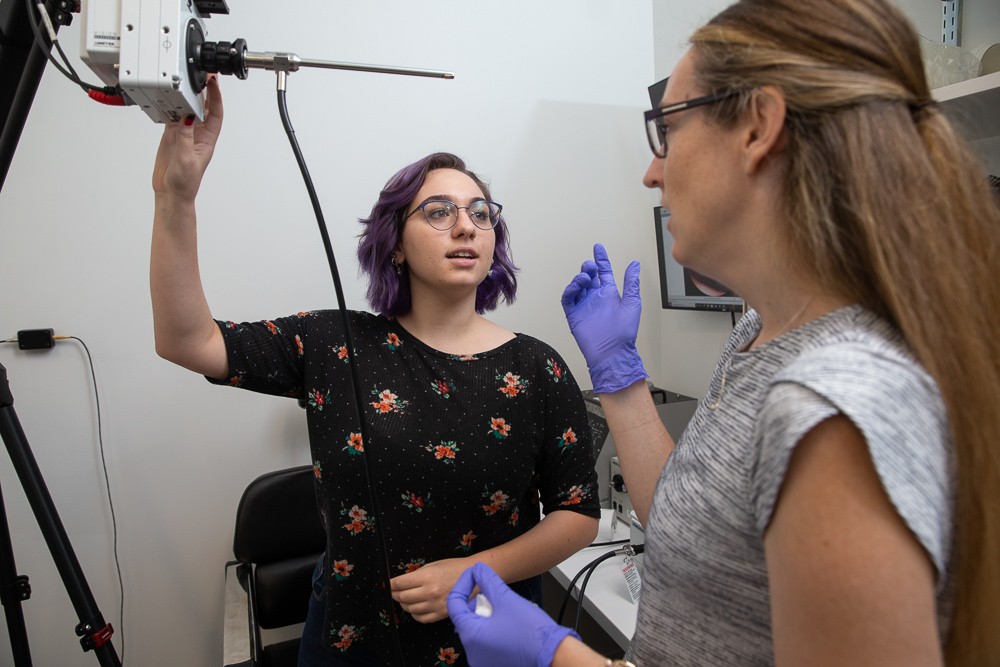
UC student Mary Wilkens, left, is mentored by UC assistant professor Victoria McKenna in McKenna's Voice and Swallow Mechanics Lab. Photo/Andrew Higley/UC Marketing + Brand
Wilkens is working in assistant professor Victoria McKenna’s Voice and Swallow Mechanics Lab. She uses a custom camera mounted on a pencil-thin light to examine the larynx of patients.
Before examinations, students suit up in personal-protective equipment, including surgical gloves, a face shield and an N100 mask that protects the wearer from the tiniest particles created by a nebulizer.
“If you want a challenge try studying cough during a pandemic,” McKenna said.
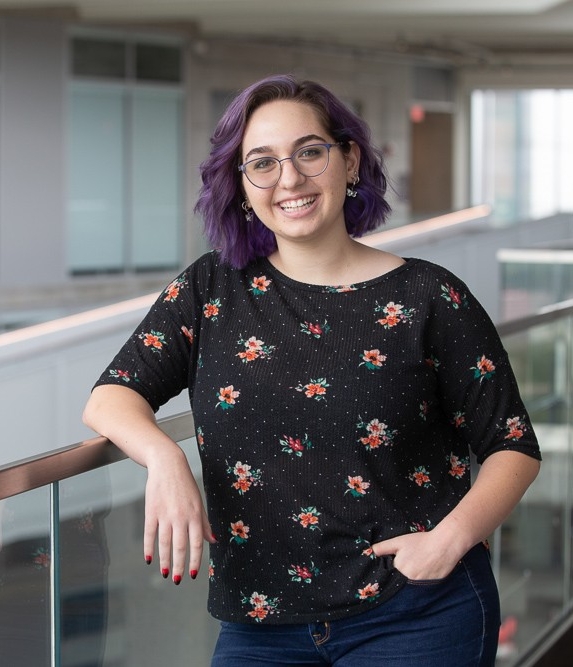
UC College of Allied Health Sciences student Mary Wilkens is conducting research with a mentor as part of UC'S UPRISE program. Photo/Andrew Higley/UC Marketing + Brand
Before enrolling at UC, Wilkens trained as a singer, which gave her an appreciation for how much people value their voice.
“Excluding sign language, it’s a big way we communicate with other people,” she said. “When people lose their voice, they lose part of themselves. They lose their confidence.”
Some voice and swallowing issues are caused by physical issues such as nodules that can develop on the vocal cords.
“They’re relatively common. In the movie ‘Pitch Perfect,’ Chloe tells the group, ‘I have nodes,’” McKenna said.
She is working on a phone app that patients can use to help their doctors track voice changes and perhaps one day treat voice disorders, some of which can be progressive and worsen over time.
Wilkens said she is gaining valuable research experience.
“Because so few people in my degree program do research, it’s something grad schools might look at when applying,” she said.
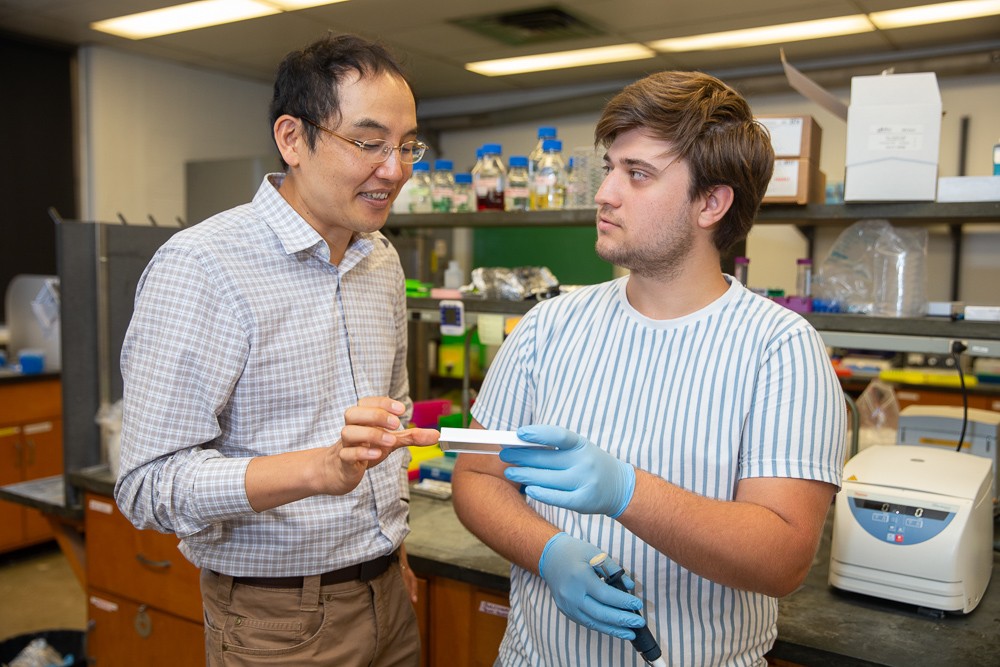
UC assistant professor of chemistry In-Kwon Kim, left, is mentoring student Chase Dietz in UC's Undergraduates Pursuing Research in Science and Engineering. Dietz is a double major in chemistry and biology. Photo/Andrew Higley/UC Marketing + Brand
Chase Dietz, a double major in biology and chemistry, is working in the lab of UC College of Arts and Sciences biochemist In-Kwon Kim. They’re studying ways to improve the efficacy of chemotherapy in cancer patients.
Dietz is a first-generation college student. And he’s openly gay, which presented some challenges at his first liberal arts school. After taking some time off, he decided to transfer to UC.
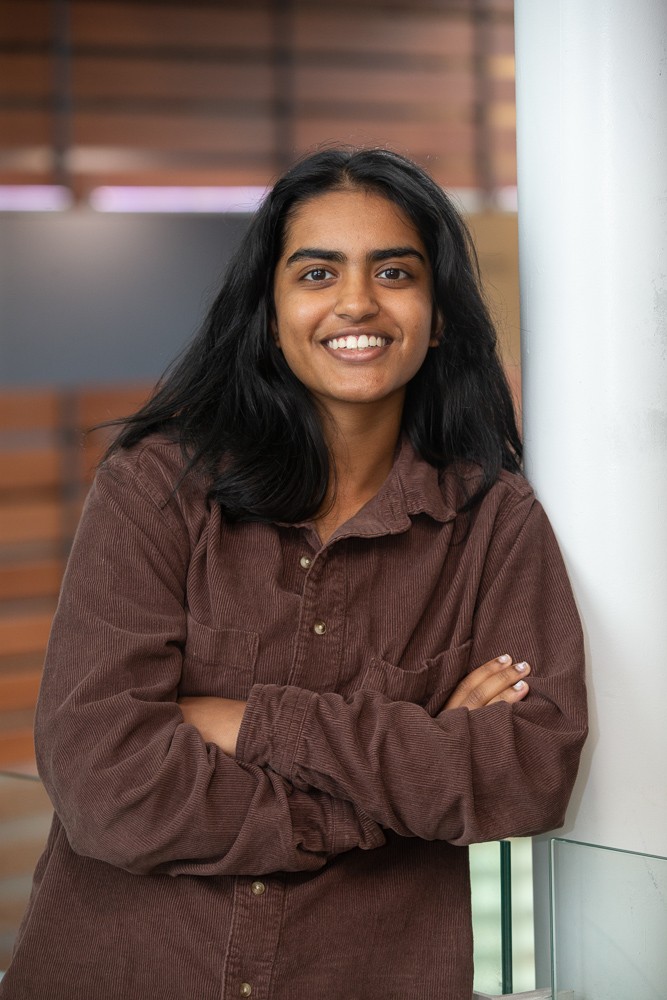
UC College of Medicine student Afra Rahman. Photo/Andrew Higley/UC Marketing + Brand
“There’s a big need for diverse experiences in research. The academic environment can be not very welcoming to people who don’t fit in the status quo,” he said.
Dietz has also worked in UC professor Ryan White’s chemistry lab. Dietz said he has learned new lab techniques and how to write scientific papers for publication in research journals. And he likes being around people who appreciate science as much as he does.
“I feel almost like evangelizing about science is the most satisfying part of doing science,” Dietz said.
The program’s stipend allowed him to participate while keeping up with his bills. Dietz said he would urge other students to apply to the program.
“I think it could take some people their entire careers to learn what I’ve learned from the program in just a few weeks,” he said. “UPRISE has shown me that I want this to be my career.”
Featured image at top: UPRISE medical sciences student Afra Rahman works in Dr. Karthick Chella-Krishnan’s lab. Photo/Andrew Higley/UC Marketing + Brand
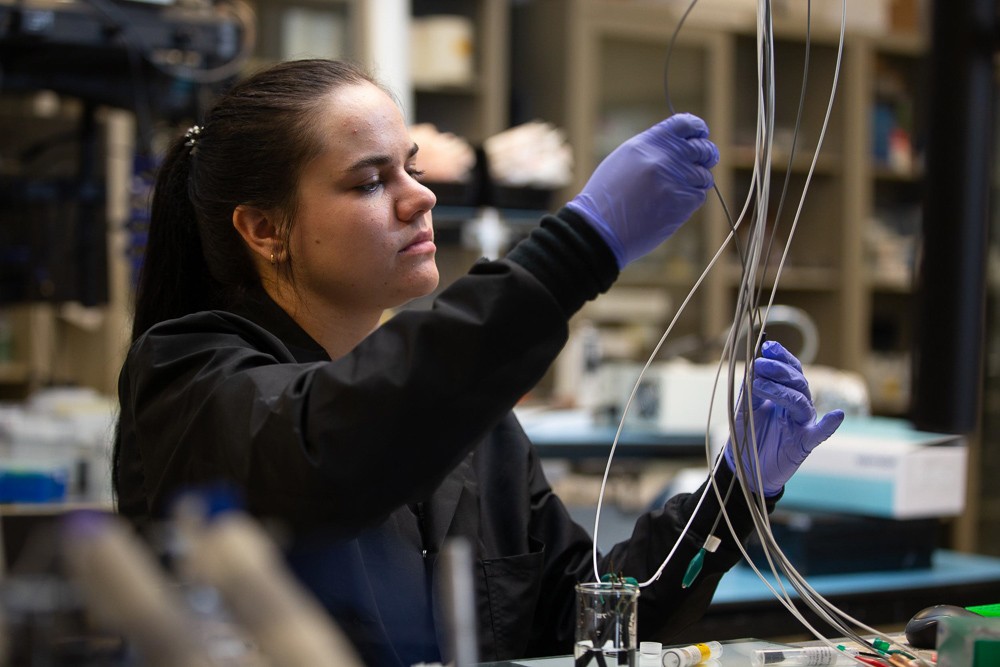
Undergraduate student Hope Whitestone conducts research in UC College of Engineering and Applied Science professor Jason Heikenfeld's lab. Photo/Andrew Higley/UC Marketing + Brand
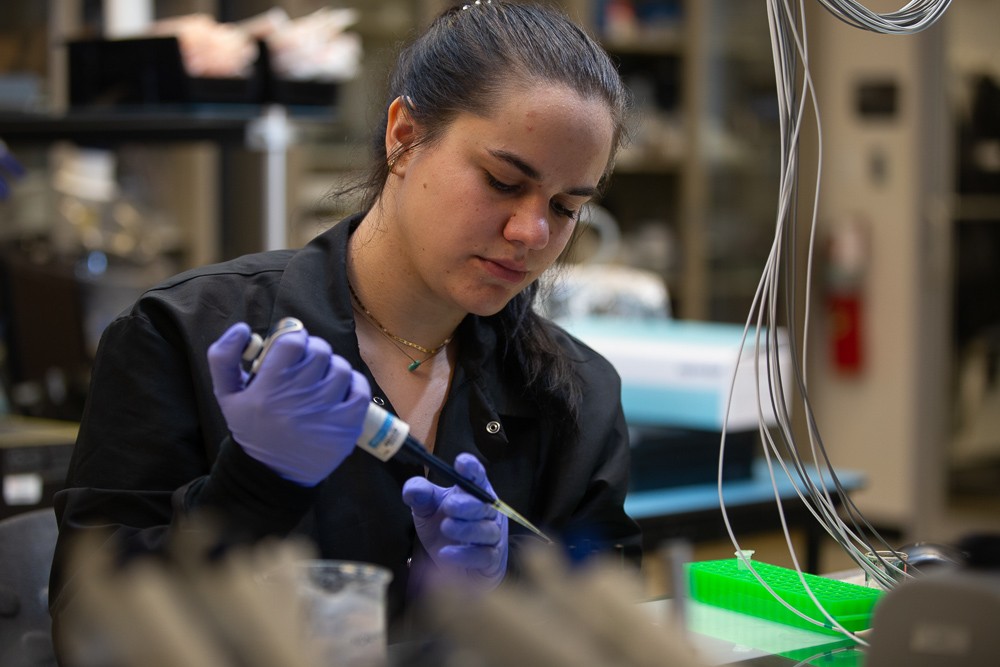
UC College of Engineering and Applied Science student Hope Whitestone works in professor Jason Heikenfeld's lab. Photo/Andrew Higley/UC Marketing + Brand
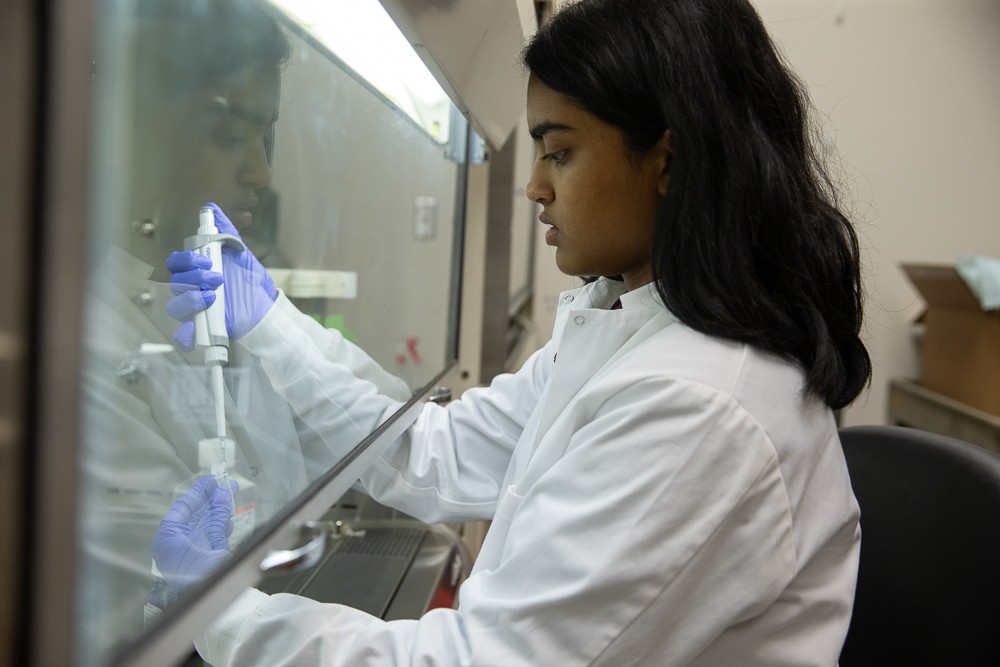
UC College of Medicine student Afra Rahman is working in Dr. Karthick Chella-Krishnan’s lab as part of UC's undergraduate research program UPRISE. Photo/Andrew Higley/UC Marketing + Brand
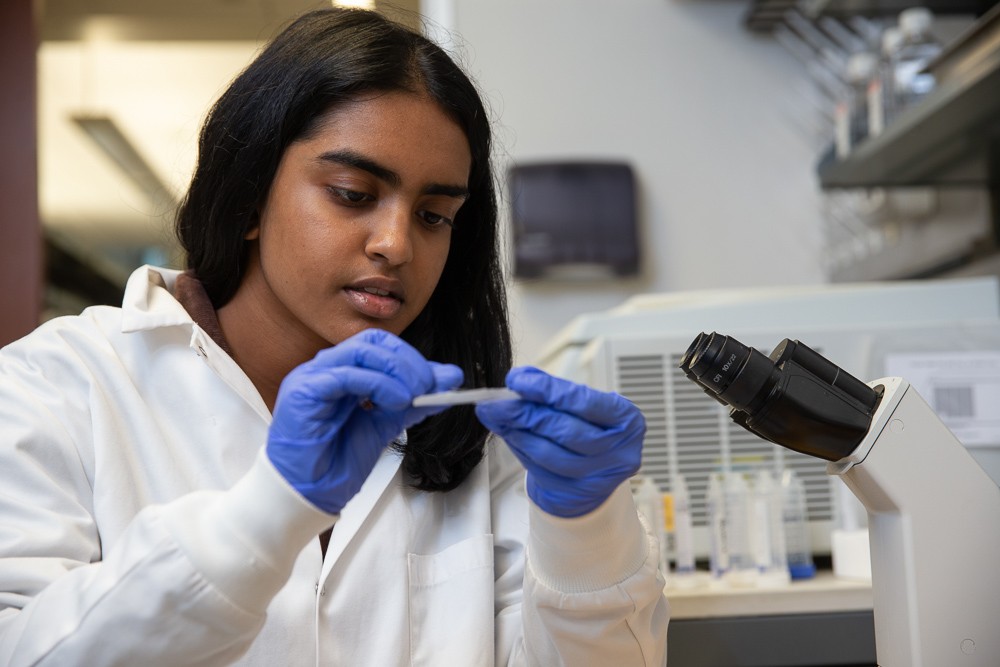
Afra Rahman is a student in UC's College of Medicine. She spent the summer conducting research with Dr. Karthick Chella-Krishnan in UC's UPRISE program. Photo/Andrew Higley/UC Marketing + Brand
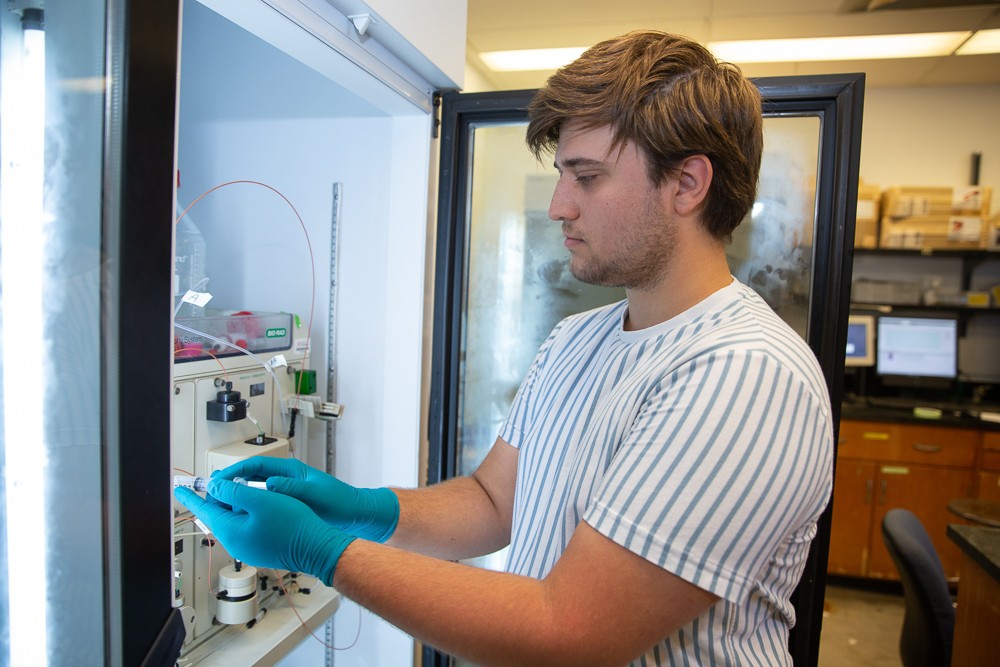
UC double major Chase Dietz works in a chemistry lab as part of UC's UPRISE research program. Photo/Andrew Higley/UC Marketing + Brand
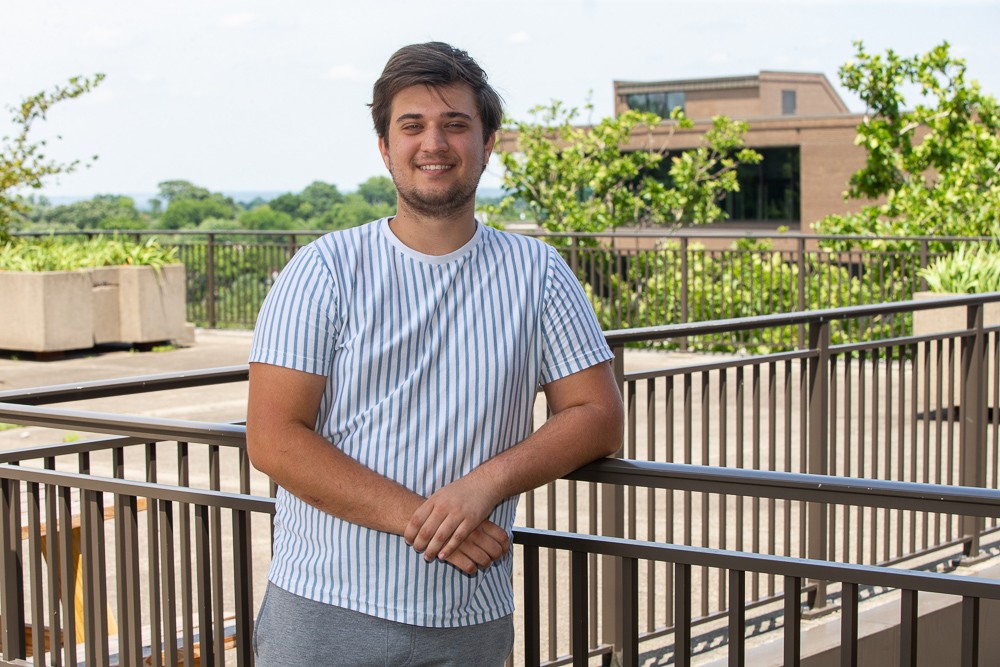
UC College of Arts and Sciences student Chase Dietz is taking part in UC's UPRISE research program. Photo/Andrew Higley/UC Marketing + Brand
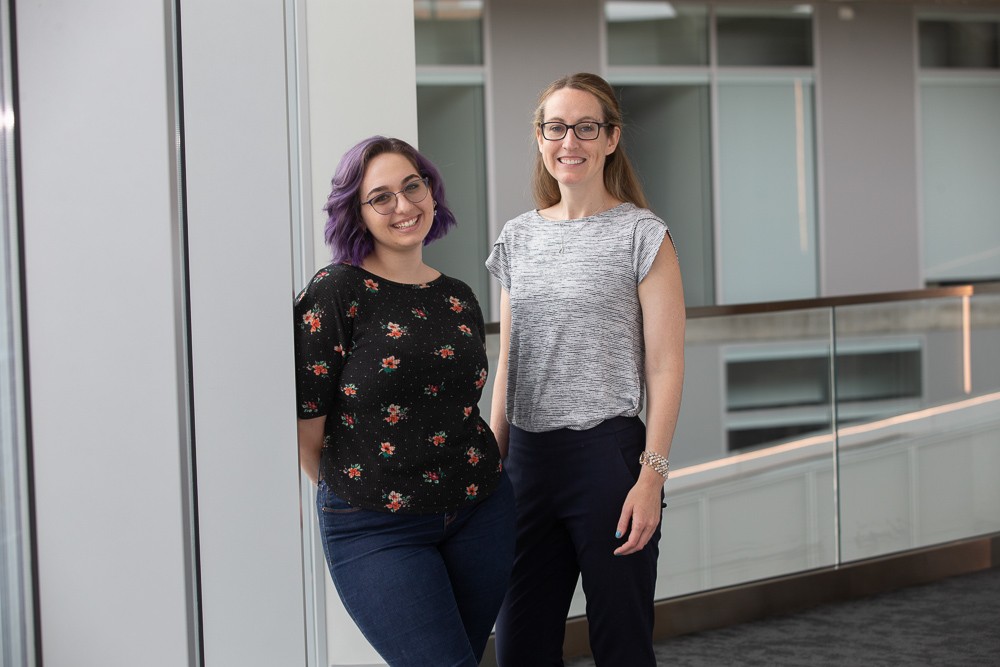
UC student Mary Wilkens, left, is working with UC College of Allied Health Sciences assistant professor Victoria McKenna in UC's UPRISE research program. Photo/Andrew Higley/UC Marketing + Brand
Next Lives Here
The University of Cincinnati is leading public urban universities into a new era of innovation and impact. Our faculty, staff and students are saving lives, changing outcomes and bending the future in our city's direction. Next Lives Here.
Related Stories
UC researcher launches app to connect patients to lifesaving...
May 7, 2025
A cardiologist and researcher at UC’s College of Medicine joined the Venture Lab at the 1819 Innovation Hub to launch High Enroll, an app that links clinical trials with willing participants.
UC students destigmatize stress in nursing
May 7, 2025
UC nurse anesthesia graduate students lead a research-based effort to address stress and burnout in nursing, coping strategies, and the importance of mindfulness and peer support.
Working out worked out for UC student Emma Kalinowski
May 5, 2025
When Emma Kalinowski first arrived at UC, she went through a handful of major changes before her burgeoning love of fitness led her to the School of Human Service's Exercise Science program. Now a senior about to graduate and inspired by a recent internship experience, she's readying to start a master's program in the fall. The CECH student spoke with us about her time at UC and her plans for a career in pediatric exercise physiology.
